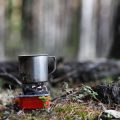Introduction to Fishing Traditions in the UK
Fishing holds a special place in the hearts of many British families, weaving together stories of countryside escapes and cherished memories by the water’s edge. In the UK, angling is more than just a hobby—it is a beloved tradition that spans generations, offering a gentle way for parents and children to bond while surrounded by nature’s tranquillity. Whether it’s the quiet anticipation on a misty morning or the thrill of landing a first catch, fishing adventures become treasured family tales. From the rolling hills of the Lake District to peaceful village ponds, Britons have long embraced both fly fishing and coarse fishing as ways to connect with one another and with the great outdoors. As camping trips continue to be a popular way for families to spend quality time together, choosing between these two classic styles can set the tone for an unforgettable adventure in the English countryside.
2. What is Fly Fishing?
If you’re considering adding a spot of fishing to your camping adventure in the UK, it’s worth exploring the unique world of fly fishing. This traditional angling method is as much about skill and patience as it is about enjoying the beautiful British countryside.
Understanding the Basics of Fly Fishing
Fly fishing differs from other types of angling because it uses a lightweight artificial “fly” to lure fish, rather than heavier bait. The technique involves casting the fly onto the water’s surface to mimic insects that fish naturally feed on. It’s a graceful activity that rewards precision and calm, making it a favourite for campers seeking relaxation and connection with nature.
Typical Locations in the UK
The UK boasts some of the world’s most iconic fly fishing spots, particularly along its chalk streams and clear rivers. You’ll find renowned locations such as:
| Location Type | Examples |
|---|---|
| Chalk Streams | River Test (Hampshire), River Itchen (Hampshire) |
| Rivers | River Tweed (Scotland), River Wye (Wales/England border) |
These environments are perfect for species like trout and grayling, which are especially popular among UK fly fishers.
Essential Equipment for Beginners
Getting started with fly fishing doesn’t require an entire shed full of gear, but a few essentials will set you up for success:
| Equipment | Description |
|---|---|
| Fly Rod & Reel | Lightweight, typically between 7-9 feet long |
| Fly Line & Leaders | Special lines designed for delicate casting |
| Artificial Flies | Mimic local insect life; varied by season and location |
| Waders & Boots | Allow anglers to stand comfortably in cool streams |
Why Does Fly Fishing Appeal to Campers?
For many families and camping groups, fly fishing offers more than just the thrill of catching a fish. It’s about spending quiet time together in peaceful settings, learning new skills side-by-side, and appreciating the slow rhythms of nature. Whether you’re introducing little ones to their first cast or unwinding after a day of hiking, fly fishing can be a calming, rewarding addition to your camping trip—especially in the picturesque wilds of the British Isles.
![]()
3. Understanding Coarse Fishing
Coarse fishing holds a special place in the hearts of many UK families, offering a wonderfully relaxed way to enjoy the great outdoors together. Unlike fly fishing, which targets specific species like trout or salmon, coarse fishing covers an exciting variety of freshwater fish—think carp, bream, perch, tench, and roach—all commonly found in local lakes, rivers, and winding canals across Britain. Some favourite spots for coarse fishing adventures include the tranquil stretches of the Grand Union Canal, the picturesque Norfolk Broads, or bustling local lakes in places like the Cotswolds and Lake District. Each location offers its own charm and plenty of friendly anglers happy to share tips.
When it comes to tackle, coarse fishing is brilliantly accessible for all ages. Rods tend to be sturdier than those used for fly fishing, with fixed spool reels being a popular choice. Float fishing is a classic technique—watching that bobbing float is always exciting for little ones!—but you’ll also see families using ledgering (where bait sits on the bottom), or even pole fishing for extra precision. Baits can be as simple as sweetcorn, bread, or maggots, making coarse fishing easy to get started with minimal fuss. For your next camping trip, choosing coarse fishing means everyone—from curious kids to seasoned grown-ups—can join in and create lasting memories beside some of the UK’s most beautiful waters.
4. The Family Experience: Which Fishing Style Suits Your Group?
If you’re planning a camping trip with your family or a group of friends, picking the right fishing style can make all the difference in creating lasting memories and ensuring everyone has a brilliant time. Both fly fishing and coarse fishing offer unique experiences, but their accessibility and learning curves differ, especially when children or beginners are involved.
Accessibility: Getting Everyone Involved
Coarse fishing is often considered more accessible for families and beginners. Many lakes, canals, and rivers across the UK offer well-maintained pegs and easy-to-reach bankside spots, making it simple to set up without wading or complicated gear. Fly fishing, on the other hand, sometimes requires standing in the water or navigating rougher terrain, which might not suit younger children or those who prefer a gentler start.
| Fishing Style | Accessibility | Equipment Needed |
|---|---|---|
| Fly Fishing | Moderate (often needs wading) | Rod, reel, fly line, flies, waders |
| Coarse Fishing | Easy (bank-side pegs available) | Rod, reel, bait, landing net, seat box/chair |
The Learning Curve: Making It Fun for Beginners
Coarse fishing usually has a gentler learning curve. Setting up simple rigs with float or ledger techniques can be quickly mastered by children and adults alike. The excitement of watching a float bob on the water and the variety of fish species means there’s always something to look forward to. Fly fishing requires more practice—casting accurately takes time and patience—but this can also add to the sense of achievement when someone finally lands their first trout on the fly.
Top Tips for Families and Beginners:
- Start Simple: For young children, choose coarse fishing with easy-to-use rods and colourful floats.
- Pack Snacks & Comforts: Bring along foldable chairs, blankets, and plenty of snacks to keep spirits high during quiet moments.
- Celebrate Every Catch: Whether it’s a tiny roach or a lively perch, every fish caught is an adventure worth celebrating together.
- Praise Effort: Focus on having fun rather than just catching fish—encourage kids to explore nature around them.
- Create Traditions: Maybe end each session with a hot chocolate or share stories about “the one that got away.”
Your Family’s Perfect First Fishing Memory Awaits
No matter which style you choose for your camping trip—fly fishing’s artful challenge or coarse fishing’s relaxed accessibility—the key is enjoying time together by the water. With a little preparation and encouragement, even first-time anglers will soon be swapping stories by the campfire about their greatest catch.
5. Considering Local Regulations and Conservation
When planning your camping trip and deciding between fly fishing and coarse fishing, it’s essential to be aware of local regulations and conservation efforts in the UK countryside. Fishing licences are a legal requirement for both styles of fishing in most waters across England, Scotland, Wales, and Northern Ireland. Before you set out with your rods, make sure to obtain the correct licence for your chosen method—this not only keeps you on the right side of the law but also supports important fishery management projects.
Understanding Fishing Licences
Whether you’re casting a fly on a tranquil chalk stream or enjoying a peaceful day beside a coarse fishing lake, each activity may require different permissions. Children under 13 do not need a licence, but if they’re joining in with family members aged 13 and over, those participants must carry a valid rod licence. These can be easily purchased online or at local post offices.
Mindful Practices for Families
Teaching children about mindful fishing practices is a wonderful way to nurture respect for wildlife. Use barbless hooks where possible, return undersized fish gently to the water, and always tidy up after yourselves—leave no trace behind so others can enjoy the beauty of Britain’s rivers and lakes too.
Respecting Protected Areas
The UK countryside is dotted with protected habitats that safeguard rare species and fragile ecosystems. Some areas may have seasonal restrictions or bans on certain types of fishing to help fish stocks recover or protect breeding birds. Always check signage at your chosen spot or consult local angling clubs for guidance. By respecting these rules together as a family, you help preserve the magic of outdoor adventures for generations to come.
6. Making Your Decision: Fly or Coarse?
Choosing between fly fishing and coarse fishing for your camping adventure can feel like a big decision, especially when you want to make it memorable for the whole family. Let’s quickly recap what makes each style unique, and then offer some down-to-earth tips to help your family pick the perfect fit.
Key Points to Remember
- Fly Fishing: Traditionally British and often associated with scenic rivers and streams in areas like the Lake District or Scottish Highlands. It involves casting artificial flies to catch fish such as trout and salmon. Fly fishing is ideal if you’re keen on learning a new skill, enjoy calm water settings, and are happy with a bit of patience.
- Coarse Fishing: Hugely popular across England, especially along peaceful canals, lakes, and reservoirs. Here, you’ll use bait to attract fish like carp, perch, and roach. It’s a versatile choice, great for all ages and skill levels, and allows everyone to join in—no specialist gear needed.
Practical Advice for Families
Consider Your Camping Location
If you’re heading to an area known for its wild rivers or beautiful fly-fishing beats, why not give fly fishing a go? But if your campsite is near a lake or canal—a classic feature of many UK holiday parks—coarse fishing might be more accessible and less intimidating for beginners.
Think About Family Preferences
If your children love hands-on activities and don’t mind getting a bit muddy with worms or sweetcorn as bait, coarse fishing can be loads of fun. On the other hand, older kids (and grown-ups) might relish the challenge of mastering a fly cast together.
Keep It Light-Hearted
Whichever style you choose, remember that fishing on a family camping trip is less about catching the biggest fish and more about sharing time outdoors, learning together, and making memories by the water’s edge. You can even try both styles if time allows!
Your Next Step
So pack your picnic basket, bring plenty of snacks (and perhaps a flask of tea!), check local regulations for fishing permits, and set off ready to discover which type of angling brings your family the most joy. Whether it’s fly or coarse fishing, you’re sure to create stories worth retelling around the campfire.


